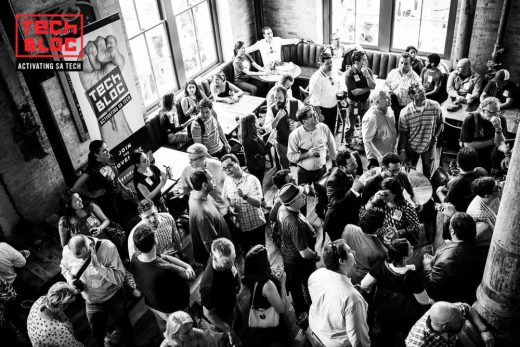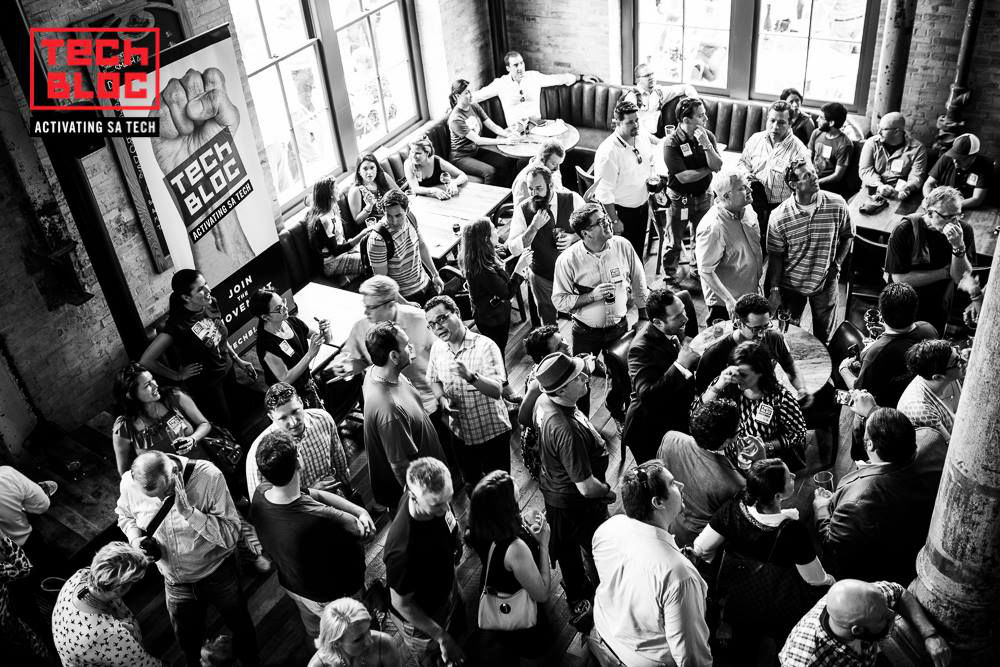With Tech Charter School, San Antonio Groups Aim to Boost Workforce

San Antonio—For many startups, finding the right people is at least as important as developing the right idea. The sooner you build out a talented staff, the sooner you can implement your plan.
In San Antonio, city leaders, a local grocery store chain, and an industry-focused nonprofit are taking that concept to a new level by trying to boost the local talent pool. Last week, Texas grocer H-E-B and its CEO Charles Butt announced plans to spend $ 3.6 million to create a system of charter high schools, starting with one that will focus on technology and entrepreneurship.
Now, tech-focused nonprofit Tech Bloc is looking to raise more than $ 1 million from the IT industry and other businesses in order to help fund the launch of the school in 2017, says Tech Bloc CEO David Heard. Heard plans to lead the fundraising effort along with Lorenzo Gomez, the CEO of tech coworking space Geekdom.
Gomez, Heard, and local tech executive Lew Moorman first developed the idea for Tech Bloc, a 501(c)(6) nonprofit designed to promote business, in late 2014 as a way to bolster the San Antonio economy, in particular the tech sector.
The new school will have a typical core curriculum, with an added focus on teaching students about business and technology, Heard says. Tech Bloc plans to help the San Antonio Independent School District, which will operate the charter school, to develop a curriculum that will simultaneously teach specializations such as cybersecurity, coding, or video game development, as well as business practices.
“We don’t want to just produce developers, we want developers and engineers and others who have business skills and acumen,” Heard says. Students will “have some sense of marketing and sales, and a sense of building and running a startup that go beyond just the technical side,” he says.
The groups also want to locate the school downtown near San Antonio’s various startups, providing opportunities for the students to land internships with local tech companies that they could participate in after school like a sport, Heard says. Partnerships with local colleges are also in consideration, as well as opportunities to earn college credit hours, certificates, and associates degrees, he says.
“How much can kids benefit from not only in-classroom training, but out-of-classroom experience working in and with startups after school?” Heard says.
The tech-focused school is just one of a group of chartered schools that H-E-B hopes to fund, which it calls Centers for Applied Science and Technology. The idea originated with local government and H-E-B, which dedicated one of its executives, Kate Rogers, to begin working on the project more than a year ago. The City of San Antonio connected Tech Bloc with Rogers after it also began considering ways to develop a tech education program. Other local groups are working on the project too, including Rackspace (NYSE: RAX), Geekdom, and USAA.
Tech Bloc is funded by local tech companies, in particular Rackspace, which is paying the salary of Tech Bloc chief operating officer Marina Gavito, a Rackspace manager who is the primary full-timer dedicated to Tech Bloc. (Heard, the chief marketing officer of San Antonio cybersecurity company SecureLogix, isn’t paid for his CEO role at Tech Bloc.)
Tech Bloc has a range of projects it is targeting, which include advocating the development of public transportation locally in San Antonio and between the Alamo City and Austin, as well as bolstering startup creation in the city. The group had its defining moment in 2015 after ridesharing companies Uber and Lyft threatened to leave San Antonio over legislation—something that has since happened in Austin—and Tech Bloc successfully lobbied the city to reach an agreement to keep them in town.
At a rally it held last week celebrating its first anniversary, the nonprofit announced three winners from a startup pitch competition it founded with Blake Yeager, the managing director for the Techstars Cloud program in San Antonio. Those “Tech Fuel” winners split $ 50,000, which comes from a $ 1 million fund created by Bexar County (which encompasses San Antonio) to be spent on four initiatives around startups: recruitment, expansion of local businesses, workforce and talent development, and marketing.
That same day, June 16, the San Antonio City Council approved spending $ 200,000 a year for four years to try to keep companies that participate in the Techstars Cloud program in San Antonio—and Tech Bloc will manage the funds. The pilot program would provide four Techstars graduates each year with up to $ 50,000 if they keep their startup headquarters in San Antonio.
“The reality is, in the last five to seven years, we’ve really become a great place for a more vibrant, urban lifestyle for young people,” Heard says about San Antonio. “We’re trying to encourage economic development—what kind of resources can we bring to bear to help foster tech startup innovation and growth?”
(15)



